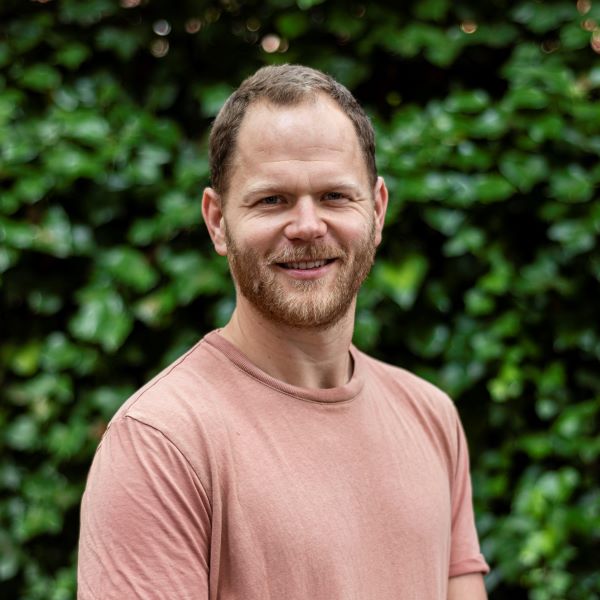
Tim Davies-Pugh
Chief Executive

Will Walker
Portfolio Manager
Whoever wins the coming election will have their work cut out. The Resolution Foundation’s recent report, Ending Stagnation, finds that aligning the net zero transition with reducing inequalities is key to kick starting the country and its long-term prosperity after a decade and a half of stagnation.
There is a powerful economic and social case for local climate action. Local approaches to net zero, based on the specific characteristics, needs and opportunities of their location have been shown to cost less than top-down approaches. They also produce greater benefits for people and communities through lower energy bills, cleaner air, better health, and stronger local economies.
An economy that works for people and planet
Power to Change’s vision is that more communities in England run businesses that give them power to change what matters to them. They contribute to an economy that works for people and planet, creating more resilient places that are better to live and work in for everyone.
What does this look like? Community hubs, spaces and shops offering a range of low carbon goods and services on every high street (think ‘library of things’, remakeries, swap and zero waste shops, arts and education); community-led sustainable farms and delivery services on the outskirts of every town and village and integrated into our cities too; and, local and community energy as the bedrock of our clean energy future.
We know that lower income and vulnerable people and communities are disproportionately affected by the climate crisis and the impacts of transitioning to a net zero economy. It’s vital that we prioritise support to people and communities on the front line if we are to achieve net zero rapidly and in way that works for society.
Community Energy Together
Community Energy Together, a groundbreaking collective of five community energy businesses, is a great example of how we can accelerate and scale towards this vision, while remaining embedded in local communities.
Power to Change’s partnership in Community Owned Renewable Energy (CORE) alongside Big Society Capital and Finance Earth, has enabled Community Energy Together to complete the biggest ever transfer of community energy assets in the UK to date.
Putting these 36MW of solar farms in community hands, which generate enough energy to power c.13,000 homes, has grown the sector by 20%. They are forecast to deliver c.£20 million to fund local community projects with over £400,000 already distributed to support important local issues such as homelessness, food and fuel poverty, education and climate action. Critically this income will support local community initiatives and provide a focal point and catalyst for local net zero development in the decades to come.
Learning for scaling community energy investments
It’s encouraging to see the political parties raising their ambition on local and community energy ahead of the election. In particular, Labour’s Local Power Plan promises up to a £400 million a year of funding for community energy and an overall ambition to “develop up to 8GWs of cheaper, cleaner power by 2030…[that] will help create thousands of jobs across the country”.
Here we share some key learnings for the attention of the Labour party and others wishing to grow community energy, leverage private investment into the sector, and ultimately deliver more of the benefits of net zero to people and places.
1. Collective approaches and aggregation can secure patient, aligned ‘big money’
One of the most important features of CORE is that it has shown how bundling multiple community-owned assets together can provide access to cheaper finance through scale. CORE achieved a first-of-a-kind £31m deal with abrdn, helping to create efficiencies across the portfolio that will maximise the benefit to communities over the long-term.
2. The challenge of complexity in an uncertain market
The complexities of financing renewable energy assets, particularly through a portfolio approach, have been very challenging for the community businesses and their directors to engage with. We certainly didn’t get everything right; there is much to learn for those designing and running potential future programmes. Big disruptions in the energy and financial markets over this period (Covid, war in Ukraine, cost of living and energy crisis, Liz Truss’ mini budget) have also had a significant impact.
3. Capacity building at the community level is crucial to achieve scale
Capital investment will boost the sector but without long term structural funding to build capacity for communities to deliver at scale, growth will not be as fast or sustainable as it has the potential to be. Aligned support provided through Power to Change’s Next Generation grant programme was key to the success of CORE. Capacity building should be prioritised in low income areas or areas with low social capital so all communities can benefit from a fair transition.
4. The development of the market through a range of community owned and community focussed infrastructure bodies is needed
It would not have been possible to achieve all this without the range of expert and community focused advisory support bodies involved, including Finance Earth, and those established through the initiative itself, Community Energy Together and Bright Renewables. The ‘market infrastructure’ must similarly be invested in to scale and de-risk community energy programmes through delivery of project development, legal, financing and asset management services.
Community ownership of renewable assets, creating funding streams for wider social change, is a vital part of the UK’s journey to net zero. We stand ready to share the lessons from our experience and ongoing research. We call on all political parties to raise their ambitions, matched with supportive policies and practical measures, to unleash the power of community energy in a fair, clean energy transition.
